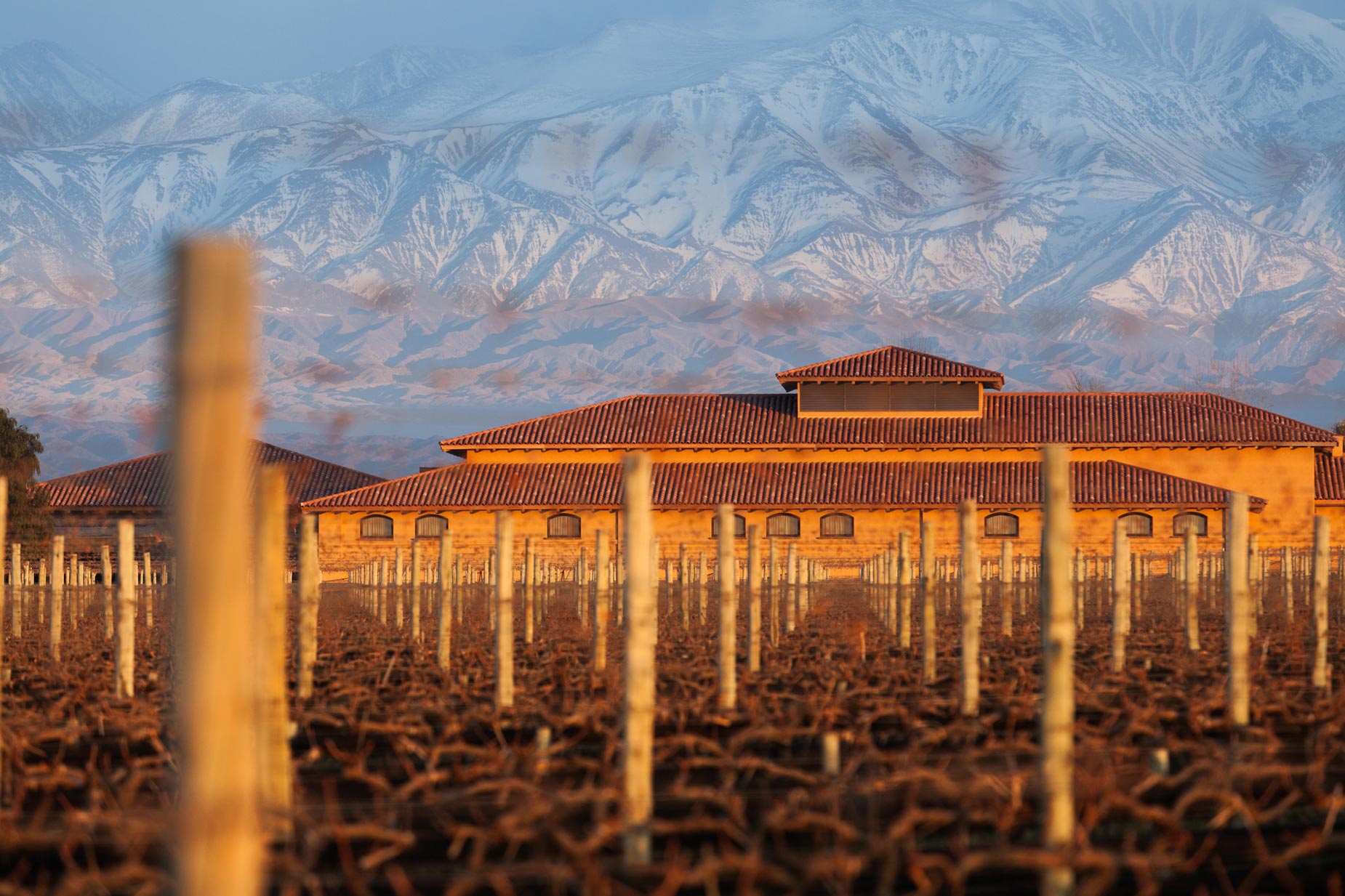Remolinos Vineyard, Agrelo, Mendoza
Finca Decero and the estate’s single vineyard is located at 1050m/3500ft in the Agrelo sub-appellation of Luján de Cuyo (GI) in the north western part of the province of Mendoza.
Remolinos Vineyard derives its name from the little whirlwind spiral formations of soil which form in the afternoon as the gentle wind lifts the dry soil from the paths of the vineyard into swaying ‘dust devils’. This natural phenomenon draws the attention of our overly protective Lechuza owls in the vineyard who sometimes take flight seemingly to chase them away!
The Effects of Altitude
Altitude plays a critical role in quality of Finca Decero’s wines as it reduces night-time temperatures which is key to preserving the natural acidity in the grapes. This natural acidity plays an important role in the aging potential of the wines (allowing the wines to age with grace over a long period of time), but also in the natural freshness/crispness and hallmark elegance of Finca Decero wines. In addition, grapes grown at higher altitudes absorb more ultraviolet light. This has a significant impact on the phenol content of the grape skins as they thicken to protect from UV absorption. As such, grapes grown at higher altitude, as at Finca Decero, produce wines of enhanced texture and intensity of colour.
A Unique Tapestry of Soils
Finca Decero has a unique tapestry of soils which is unmatched in other areas of Agrelo. Remolinos Vineyard is the converging point in Agrelo of two different soil formations: alluvial and colluvial soils. The vineyard also uniquely has very high levels of calcium carbonate dissolved in the silt deposits interlaced through these soil types across the vineyard. It is this dissolved calcium carbonate and silt that give Decero wines their hallmark silky palate feel for which they are renown.
Soil Profiling & Polygons of Special Vines
We have done extensive analysis of our soils in two major stages: initially in 2000 to make planting decisions and in 2015 overseen by wine terroir consultant Pedro Parra PhD to understand micro-differences affecting each individual vine.
Having noted year on year quality differences within blocks and rows of vines, which had already caused us to pick and micro-vinify certain parcels of fruit, in 2015 we measured the electro-conductivity of the entire vineyard and developed a precise map of micro-differences within the soil. We then dug over 1000 soil pits to assess these differences in the chemistry of the soil and how it affected each individual vine. This enabled us to select small polygons of super-performing vines and nurture these to create small parcels of superb quality fruit. We honour the individuality of these parcels all the way through the fermentation and maturation process keeping them separate through to the final selection decision, to decide where we will use them to contribute to the upper echelons of our portfolio of wines.

The Effects of Altitude
Altitude plays and critical role in quality of Finca Decero’s wines as it reduces night-time temperatures which is key to preserving the natural acidity in the grapes. This natural acidity plays an important role in the aging potential of the wines (allowing the wines to age with grace over a long period of time), but also in the natural freshness/crispness and hallmark elegance of Finca Decero wines. In addition, grapes grown at higher altitudes absorb more ultraviolet light. This has a significant impact on the phenol content of the grape skins as they thicken to protect from UV absorption. As such, grapes grown at higher altitude, as at Finca Decero, produce wines of enhanced texture and intensity of colour.

A Unique Tapestry of Soils
Finca Decero has a unique tapestry of soils which is unmatched in other areas of Agrelo. Remolinos Vineyard is the converging point in Agrelo of two different soil formations: alluvial and colluvial soils. The vineyard also uniquely has very high levels of calcium carbonate dissolved in the silt deposits interlaced through these soil types across the vineyard. It is this dissolved calcium carbonate and silt that give Decero wines their hallmark silky palate feel for which they are renown.

Soil Profiling & Polygons of Special Vines
We have done extensive analysis of our soils in two major stages: initially in 2000 to make planting decisions and in 2015 overseen by wine terroir consultant Pedro Parra Ph.D to understand micro-differences affecting each individual vine.
Having noted year on year quality of differences within blocks and rows of vines which had already caused us to pick and micro-vinify certain parcels of fruit, in 2015 we measured the electro-conductivity of the entire vineyard and developed a precise map of micro-differences within the soil. We then dug over 1000 soil pits to assess these differences in the chemistry of the soil and how it affected each individual vine. This enabled us to select small polygons of super-performing vines and nurture these to create small parcels of superb quality fruit. We honour the individuality of these parcels all the way through the fermentation and maturation process keeping them separate through to the final selection decision, to decide where we will use them to contribute to the upper echelons of our portfolio of wines.